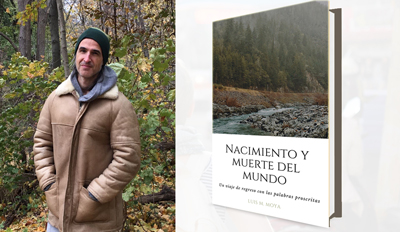

Highlights
"Because to say something you need a reason"— Top3 Magazine
"" So is the fate of the 'best anti bestseller of the 21st century' to be lost among the thousands of self-published books on Amazon? Most likely"— Top3 Magazine
"This book is not written to tell us anything"— Top3 Magazine
"The idea of success is quite present"— Top3 Magazine
★★★
Your Brand Here
Enjoy all the advantages.
Go PREMIUM sponsor!
+INFO
★★★
Add Comment
अंपढ रहेगा इंडिया तबभी तो अंधभक्त बने गा इंडिया#tax #books #modiji #india #ytshorts • Ranjay Ray (sach-tak Expose)
What Kind of books being read by IK.| who is proving these books | Sami Abraham Latest • PTI Today Now
విద్యార్థులను చితక బాదిన స్కూల్ సిబ్బంది | #hostel #children #school #schoollife #books #trending • NSTV Live
Good News for Parents: Free Education & Free Books ! Geo News • Geo News


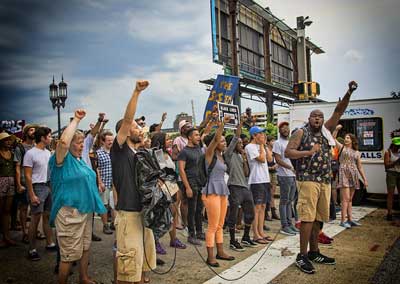
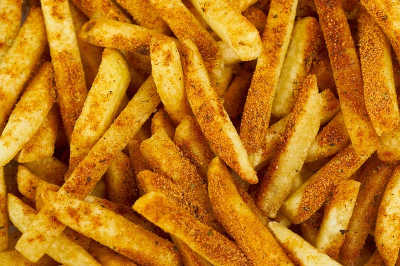
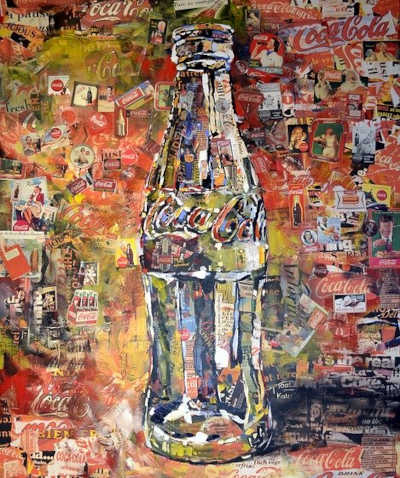



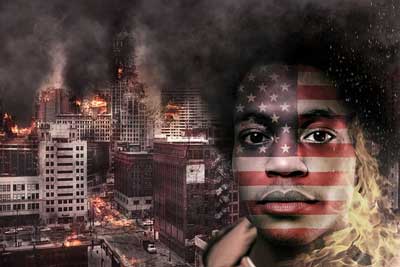
On the occasion of the release of his recently published book Nacimiento y muerte del mundo: un viaje de regreso con las palabras proscritas (Independent publication, 2022), we interview its author, Luis M. Moya (Luis Moreno Moya, Barcelona, 1976) to learn more about him and his latest book that we certainly recommend. It is a short, but intense, profoundly original work that moves between philosophy, poetry and that tries to make a very personal analysis of the times we live in. We leave it up to the reader to decide with which other works and authors it would be interesting to make a comparison. As a way of introduction, we are left with the slogan that accompanies the book: 'The best anti bestseller of the 21st century'.
The book ends with twelve questions. Do you really think questions steal our soul?
Yes, but I consider this book to be a safe place.
How can we know if the place of this interview is safe too?
Our soul is constantly at stake. I think it's just about saying it, verbalizing it. Showing respect for language, for its power. Asking is not harmless, at least it shouldn't be. Only then, we can offer each other something of value: war, for example.
The second question on the list is: is it fascist to ask?
[Laughs] In a utopian democracy, it would be.
Dystopian, rather.
In a full democracy, war must be sacred. How is this achieved? Perhaps, through gaming, through special tools that would allow us to act directly and constantly, without prior request and in an orderly manner, on the mechanisms that govern us socially. The confessional state would make sense again. Playing would be the new way of praying. We would have freed the word, fascism would have been transformed and society could be productive again. The Internet, in all its potential, could bring us a little closer to that.
"Unfortunately, artists are people more interested in changing the form of art than that of praying."
Is not the low level of public debate the real problem?
No. It's not so much about questioning the issues we talk about or the approaches we use, but the way our conversations take, their form. We have very assumed the medium, the sender and the receiver. I'm not saying that it's not like that, I'm saying that we are too clear about what's what in each case and that makes us depend a lot on ideas. I think that should be the responsibility of art, I mean, to break that assumption. Unfortunately, artists are people more interested in changing the form of art than that of praying.
You talk about all this in the book.
Somehow I guess so. The impression I have is that this book takes place in a time and space before ideas. A place from where words observe us and can decide for themselves, where they can stop being words. This book does not talk about anything in particular. At least not in the same way as we can do it in this interview. This book is not written to tell us anything, but it is built as a space where words can move and relate to each other as they please. That is what I think allows them to be loaded with meaning and manages to renew our gaze. That relationship between words, which is only possible if a space of freedom and safety is created, is perhaps the most important thing that happens in the book. Democracy is this book.
Does a book like this have a place in the current literature panorama? What has been your experience throughout the publishing process?
It has been quite interesting. There were a couple of small publishers interested in the book, but the idea of self-publishing and the freedom it gives you, made me take my last decission. Having advanced knowledge of programming was also important to me in order to control the entire process and to be able to offer a very professional final product. You can't find the physical book in bookstores, but it is available online e.g. on Amazon. In any case, in the event that a major publisher had offered me its services with the possibility of bigger distribution, my last decision would surely have been the same due to the type of book it is and the author I am.
"My urgency is not to write, it is to defend myself from the revolution and that takes me to a place before the violence of success."
So is the fate of the 'best anti bestseller of the 21st century' to be lost among the thousands of self-published books on Amazon?
Most likely. I find it hard to understand that a book like this, alive, even in its worst sense, can be successful. Especially considering that success is something very organic too. I can feel some incompatibility, but who knows. My urgency is not to write, it is to defend myself from the revolution and that takes me to a place before the violence of success. I'm telling you, if this book were successful I don't really know how I would understand it.
If it is successful it is because something has gone wrong.
I do not know. There's something sick and broken in this need for recognition that we currently have, but, for that very reason, I celebrate those who seek it and display it unapologetically.
However, in the book, the idea of success is quite present, even as something from which we cannot run away.
I mean that we no longer know not to see. That's what I'm trying to say. At another point in the book I also say, 'technology has completely changed ants'. Well, that's it. My only knowledge is about ants. Anyway, I am very much in favor of success because I think that the only thing intrinsically capitalist is history.
"[...] a point has come where in order to agree with what the Catalans want and how they want it, you have to go against them."
Let's talk about the reasons for the book. At some point it is insinuated that you start writing it because of the events of the first october in Catalonia. You are from Barcelona and I guess you should experience them up close.
It's right, but the book is not about that. I am convinced that writing is prior to oneself and, in that sense, the events of the first october were a kind of connection. But, eventually, this book talks about how to devour and not be devoured with the help of fire and words.
There is a chapter, the only one written in Catalan, quite harsh with the Catalans.
It's just that a point has come where, in order to agree with what the Catalans want and how they want it, you have to go against them.
But you are Catalan.
Well, I'm thinking about it. [Laughs] It's pretty hard to quit. If we had our own identity card or passport, it would be easier to resign.
The world seems divided into two fronts, that strains our relations. A certain totalitarianism arises again, sometimes disguised as the opposite. Have you ever felt censored?
I think censorship is always there and dealing with it is part of the creative process. I think it may even be an ally. But I don't think that censorship, in its broadest and least innocent sense, actually prohibits anything, but, on the contrary, encourages you to do and say, but using its own words and facts. In that sense, yes, it seems to me somewhat perverse. I think we just live trapped in language.
In all your books the idea of nature is very present, it is the central axis around which all your thought develops.
So it is. Also, with regards to this, I would like with your permission to take advantage of this interview to launch a message.
Go ahead.
Dear reader, in case you find yourself facing the dilemma of intervening or not in wild nature, altering, modifying or protecting it or not, I only remind you that, whatever you do, it is not possible, I repeat, it is not possible because your dilemma is not a dilemma, it is not even a human thing, but it is also wild nature. For this reason, please, don't just stare but defend without hesitation the poor cricket trapped between the jaws of the group of ants! We are still in time to stop being artists and become humans beings again. Thanks.
"Perhaps, that would be the difference between my first book and the second. The first is closed in on myself and the second talks about you."
There it is! But let me to go now to the beginning. In fact, you start studying Fine Arts, so, how do you become a writer and why do you take so many years to publish again?
I have never had the ambition to become a writer. I have not even had a difficult childhood, nor have books saved me from anything. Actually, I've always believed that culture is an important part of the problem. Maybe that's it. Twenty years ago, I was dedicated to creating my pictorial work. However, fighting against my own visual culture didn't do me much good. Instead, having read almost nothing up to that point, or knowing anything about writing, that led me to start writing. After seven years and thousands of pages, I finished my first book of barely a hundred pages, without a title, without a cover, which I edited and distributed on my own. At that moment, I was left with the feeling that I had already said everything. Now, after twenty years, I publish again in a rather casual way. The explanation is that, surely, writing and saying are not necessarily the same.
However, it seems to me that you're still dealing with this obsession, this idea about to be able to say something and it is still very present in this second book.
Yes it's correct. What I told you before about living trapped by language. It is the idea, shared in both books, of being able to say, but it has to come from the immediate experience rather than reason. For that, I have to go through faith or magic better than using music or beauty. For me, this is a basic nuance. After writing the two books, and based on the fact that both are based on his own process of destruction, it seems to me that saying something is much more complicated than saying everything. Perhaps, because to say something you need a reason, to agree in some way with someone else. Maybe that would be the difference between my first book and the second one. The first is closed on myself and the second talks about you.
"[...] when you are young, the urgency is life, oneself. When older, it is death, the other. My next book will perhaps deal with the third urgency, which may be (re)birth, the rest ."
Is your first book available in bookstores?
As I said before, I didn't even have a title until recently. Now, the work is in process and my first book soon will be available on Amazon and online bookstores as well.
Are you going to take another twenty years to publish your third book?
It is hard to me to write. The first book, it took me about seven years to finish. This second one, about five. And they are short books, barely a hundred pages long. But it seems logical to me that in the 21st century this is the case. I would like to try writing a novel, but I cannot express myself in those terms, in that language, its codes are old and its validity seems strange to me, even a little suspicious. Anyway, I would say that when you are young, the urgency is life, oneself. When grown up, is the death, the other. My next book will perhaps deal with the third urgency, which may be the (re)birth, the rest.
Surely it will be as interesting as it has been to read Nacimiento y muerte del mundo, a book that we recommend enthusiastically to all our readers.
Nacimiento y muerte del mundo: un viaje de regreso con las palabras proscritas by Luis M. Moya
ENGLISH VERSION WILL BE SOON AVAILABLE
Do you have published or self-published a book?
Contact us and make the presentation of your book to our readers!